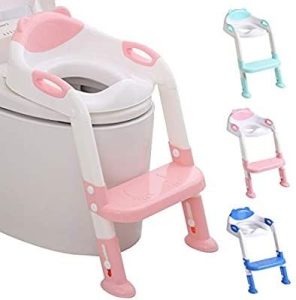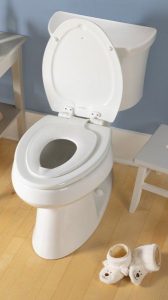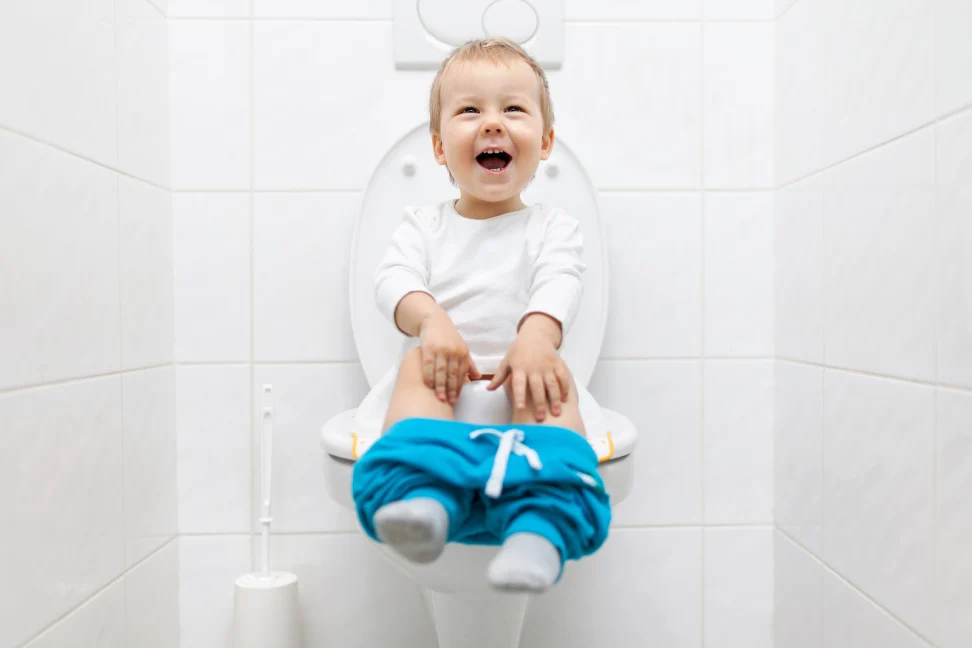Every parent reaches that milestone: potty training their child. It can be a messy and exciting time, filled with frustration and celebration. Boys often present unique challenges in potty training, but with patience and the right approach, success is within reach! This article offers a roadmap for potty training boys, with tips and tricks to make the journey smoother.
Important Note: Every child develops at their own pace. These are general guidelines, and it’s important to consult your pediatrician if you have any concerns.
Signs of Readiness
Before you embark on potty training, it’s crucial to assess if your son is physically and mentally ready. Here are some signs to watch for:
Age:
There’s no magic age for potty training, but most boys show readiness between 18 and 24 months.
Diaper Awareness:
Does your son seem bothered by a full diaper? Does he tell you when he’s wet or dirty?
Staying Dry for Longer Stretches:
Can your son stay dry for at least two hours during the day or throughout the night?
Mimicking Adults:
Does your son show interest in using the potty or toilet?

Creating a Potty-Friendly Environment
Once you know your son might be ready, set the stage for success:
-
Potty Chair vs. Toilet Seat: Provide a comfortable potty chair or a child-sized toilet seat reducer. Let your son choose which he prefers.
-
Practice Makes Perfect: Encourage your son to sit on the potty regularly, even if he doesn’t go. Make it a fun and casual routine.
-
Positive Reinforcement: Celebrate any attempts to use the potty, even if they are unsuccessful. Positive reinforcement is key!
-
Stock Up on Supplies: Get colorful and fun-themed underwear and easy-to-pull-down pants. Stock up on wipes and flushable liners for accidents.
Starting Potty Training
Here’s a step-by-step approach to potty training your son:
-
Pick a Time: Choose a calm and relaxed time, like after nap or playtime, when there are fewer distractions.
-
Undress for Success: Dress your son in loose-fitting clothes or clothes that are easy to pull down.
-
Let Your Son Take the Lead: Encourage your son to sit on the potty for a few minutes. Don’t force him to stay longer than he’s comfortable.
-
Relaxation is Key: Create a relaxed atmosphere. Read a book, sing songs, or chat to keep things light.
-
Accidents Happen: Accidents are inevitable. Clean up calmly and reassure your son that it’s okay.

Tips for Potty Training Boys
Here are some additional tips specific to potty training boys:
-
Target Practice: Boys may need to learn to stand up to pee. Place colorful targets in the toilet bowl to make it a fun game.
-
Double Duty: Some boys may have difficulty controlling both pee and poop at the same time. Focus on pee first, then gradually introduce bowel movements on the potty.
-
Lead by Example: If your son has an older brother or a dad, letting him observe how they use the toilet can be helpful.
-
Books and Videos: There are many children’s books and videos about potty training that can be a fun and engaging way to introduce the concept.
Managing Setbacks
Potty training isn’t always linear. Here’s how to handle setbacks:
-
Stay Calm: Don’t get discouraged by accidents. Regression is normal.
-
Revisit Readiness: If there are frequent accidents, re-evaluate your son’s readiness. Take a break and try again later.
-
Identify Triggers: Are there stressful events or changes in routine that might be causing setbacks?
-
Positive Reinforcement: Maintain a positive and encouraging attitude. Celebrate small wins and keep things light.

The Importance of Patience
Potty training takes time and patience. Every child progresses at their own pace. Celebrate the little victories and avoid comparing your son to others.
Remember: There is no magic formula. With patience, consistency, and positive reinforcement, you’ll guide your son on his potty training journey!
Potty Training Milestones and Nighttime Concerns
Here’s what to expect as your son progresses in his potty training journey:
-
Early Successes: Early on, your son might have accidents but may also experience successful uses of the potty. Celebrate these wins!
-
Bowel Movements: Many boys achieve bladder control before bowel control. Be patient and consistent, focusing on praise for trying.
-
Nighttime Potty Training: Nighttime dryness can take longer. Pull-up diapers are a good option for nighttime wear at this stage.

Potty Training on the Go
Potty training doesn’t have to stop when you leave the house:
-
Pack Essentials: Bring a portable potty seat or disposable liners for public toilets. Pack extra wipes and a change of clothes in case of accidents.
-
Plan Bathroom Breaks: Plan bathroom breaks regularly, especially before and after car rides or outings.
-
Positive Reinforcement: Reward your son for using the potty while you’re out and about with praise or stickers.
The Importance of Hygiene
Potty training is a great opportunity to teach good hygiene habits:
-
Washing Hands: Teach your son the importance of washing hands thoroughly with soap and water after using the potty.
-
Wiping: Boys may need guidance on wiping properly from front to back.

The Importance of Communication
Open communication is key throughout the potty training process. Talk to your son about what’s happening and answer his questions honestly. Let him know you’re there to support him every step of the way.
Professional Help and Resources
If you’re concerned about your son’s progress or have questions, don’t hesitate to talk to your pediatrician. They can provide guidance and support specific to your son’s needs. There are also many online resources and parenting websites with potty training tips and advice.
Conclusion: A Rewarding Journey
Potty training can be a messy but rewarding adventure for both you and your son. By following these tips, creating a positive and supportive environment, and celebrating successes along the way, you’ll help your son reach this important milestone. While there’s no magic food that guarantees potty training success, a healthy diet with plenty of fruits, vegetables, and whole grains can help with regularity.
Remember: Every child is unique. Be patient, have fun, and enjoy this special time in your son’s development!



